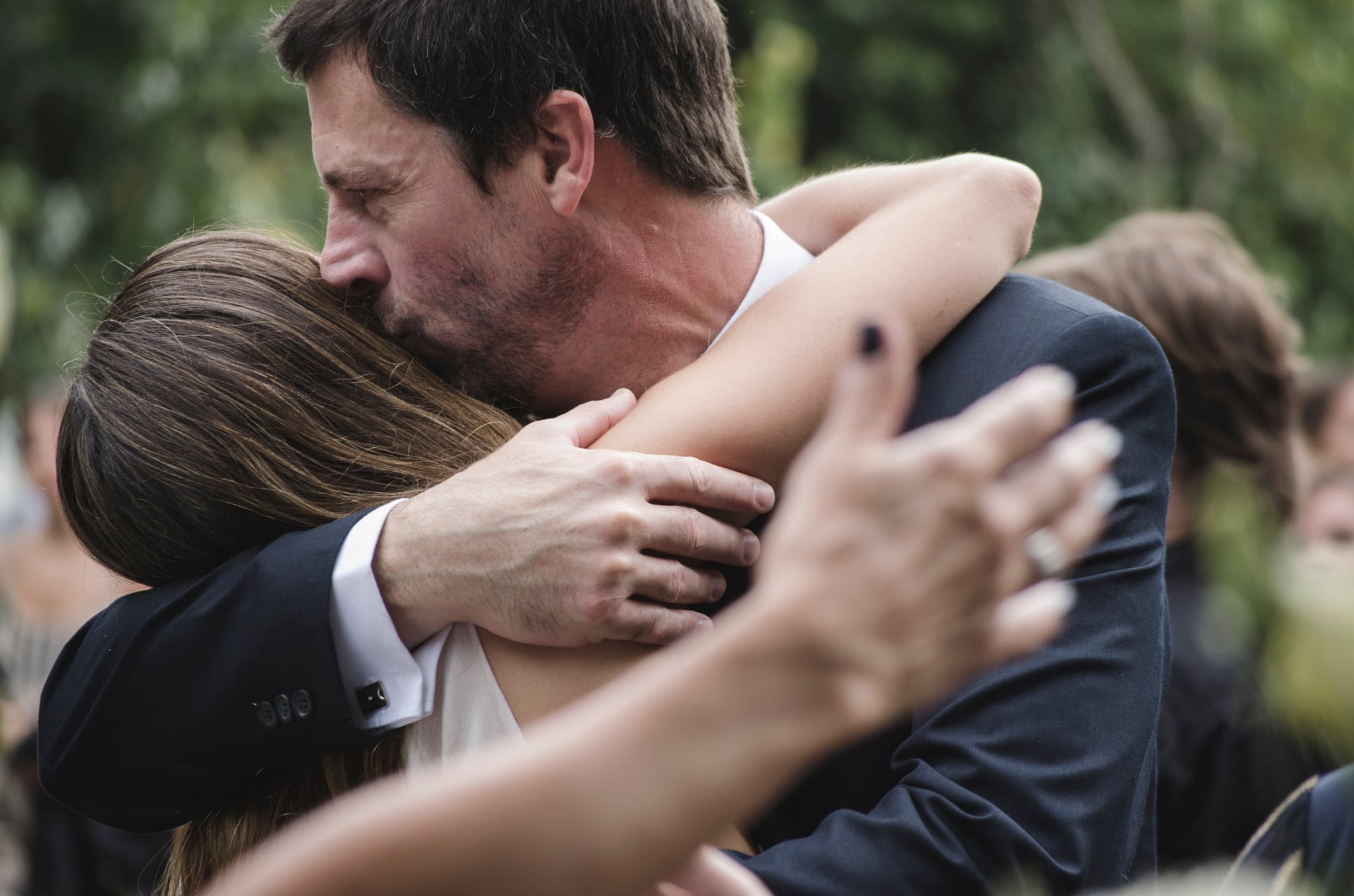I Let My Dad Back Into My Life After He Walked Out
I Allowed My Father Back Into My Life, Even After His Alcoholism Damaged It

The women in my immediate family have each persevered through their own difficult set of circumstances. My mother fought and beat breast cancer twice. My older sister endured multiple complications with getting pregnant before having her four boys. And I fought anorexia and its many demons throughout high school. All of this aside, the one hardship that united us most significantly was the man once most present in our collective lives: my father.
Some of my youngest memories involve my dad and his alcoholism. On one hand, I recall joyous trips to Disneyland and him allowing a 12-year-old me to steer our car up the street to our house, my short legs not yet able to reach the pedals. On the other hand, I vividly remember his drunken arguments with my mom and him retreating into the garage, where he would smoke and drink alone. To call my relationship with him volatile, especially once my parents divorced, is a gross understatement.
I let father back into my life even after he'd walked out, because I honestly believed he'd changed. I, once again, saw him for who he truly was without his alcoholism — a wonderful dad.
At some point in middle school, I gave him an ultimatum: quit drinking and get help or I'm no longer living with you. The inebriated rampages I continued to witness had gone too far. He chose the alcohol, effectively walking out of my life. Although my relationship with my mother was also on the rocks, I knew at that point that I'd rather be with her full-time. I felt safer, both physically and emotionally. A couple years went by as I started acting, cheerleading, and entered high school. Life, as hellish as it had been, went on. It was like wading in the shallows after being repeatedly knocked down by waves. That is, until the Summer before my sophomore year.
At that time, I developed an eating disorder. It clung to me so tight as I navigated some of the most impactful years of my young life. At its peak, it landed me in the hospital just as I'd started my senior year. Life as I knew it changed entirely. I was now living in a hospital room, getting my vitals taken at 6 a.m. every day, and abiding by a schedule of meals and therapy. Quite literally, I was fighting for my life. Family, friends, church members, and school staff visited me, offering flowers and their best wishes. I thought I'd seen it all when my school counselor stopped by, but that would prove to be far less shocking than what was to come.
A few months into my stay, my father showed up. It was early morning, before breakfast, and I had zero warning. Like a scene straight out of a daytime drama, he knocked on the door and appeared before me. We hadn't talked in years, let alone been in the same room. While shock flooded my system, I did my best to stay calm. After all, it wasn't entirely out of the realm of possibility for him to worry about his daughter. And honestly, I understood. Instead of demanding he leave, he stayed and we talked. I'd grant him that much. In doing so, I was reminded of who my dad was without his addiction. One visit turned into a few, then before I knew it, it had become routine for him to visit almost daily. We'd go on walks around the hospital grounds (limited to 20 minutes by hospital staff, of course) and he'd get me iced coffees. We'd sit side-by-side and chat about life. Slowly, I began to let him in again. Once I was released from my in-patient hospital stay, I chose to continue living with him part-time.
The things I had adored about my father as a little girl resurfaced. He spoke to me like I was an equal and listened to what I had to say. He valued my opinions. His animated sense of humour and love of classic rock filled much of our time together. Most importantly, he'd started getting help. I quickly realised that our addictions — in his case, his alcoholism, and in my case, my eating disorder — do not define us. The things we do in the midst of our diseases don't stem from who we are as people, but from the needs of our dependencies. All of these years I'd loved my dad. What I'd hated was his addiction and what it made him do. At this point, I could relate to that. So long as he was getting help, I could forgive him.
I let father back into my life even after he'd walked out, because I honestly believed he'd changed. I, once again, saw him for who he truly was without his alcoholism — a wonderful dad. Even though that only lasted for a couple years thereafter, I don't feel foolish for having done it. I wouldn't take back the understanding and handful of more good memories that I gained from it. Forgiving a family member for decidedly exiting your life is far from easy, but it can reopen a beautiful relationship if it works out. And if it doesn't, you can rest assured knowing that you gave someone a true second chance.








